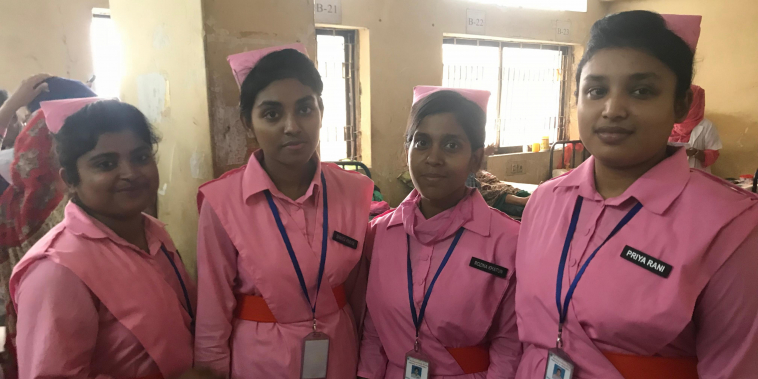Partnering with Midwives in Bangladesh

Ensuring that every baby is delivered with the assistance of a skilled birth attendant and increasing access to family planning are critical strategies for reducing maternal mortality and morbidity - and two areas where collaboration between women’s health professionals is key.
The presence of a skilled attendant at birth brings risk of stillbirth or death from intrapartum–related complication down by about 20 percent – but access varies dramatically. In Bangladesh, just 42 percent of deliveries have skilled birth attendance, which directly contributes to the 5,200 maternal deaths each year as a result of pregnancy-related causes.
Likewise, though increasing access to family planning services saves lives, 214 million women in low-resource settings have an 'unmet need' for modern contraception.
FIGO recognises the critical role that midwives play in the continuum of quality women’s health care globally, and our shared committed to ensuring women’s health and rights.
As UNFPA's State Of World's Population 2019 Report shows, there is so much more to be done before all women and girls are able to exercise their rights. Our post-partum intrauterine device (PPIUD) Project in Bangladesh is a powerful example of opportunities for effective collaboration towards common goals.
Expanding access to family planning
Given that ovulation can resume four weeks following childbirth, the often-neglected postpartum period provides an excellent opportunity to deliver family planning services to women who may otherwise have limited contact with the healthcare system. To date, working in partnership with the Obstetrical and Gynaecological Society of Bangladesh (OGSB), we have trained more than 1,300 providers and counselled more than 106,000 women.
Globally, a midwife is often the first point of contact for a woman during pregnancy and postpartum, and in 2010, the Prime Minister of Bangladesh, Sheikh Hasina, announced the creation of a national professional midwifery cadre.
Our Bangladesh PPIUD Project is now expanding to build on this opportunity, training midwifery faculties on postpartum family planning and insertion of postpartum intrauterine devices (IUDs) after vaginal delivery.
Working alongside and in partnership with OBGYNs, the goal is to expand access to long-acting reversible contraceptives (LARCS) and institutionalise comprehensive counselling and postpartum family planning care.
Said Professor Parveen Fatima, specialist OBGYN and National Coordinator of the PPIUD Project in Bangladesh,
“Midwives are fast becoming an integral part of the healthcare system in Bangladesh. Training them to counsel about postpartum family planning methods and PPIUD insertion is a significant opportunity to reduce unmet need for contraception and encourage proper birth spacing between pregnancies.”
Defending women’s rights together
Midwives are an integral and inseparable component of the health care delivery system, playing a vital role in improving maternal and neonatal health worldwide. In taking this opportunity to build a working relationship with midwives as part of postpartum family planning, our colleagues at OGSB are demonstrating the importance of a collaborative approach between healthcare professionals to achieve sustainable, high quality health outcomes for women and children.
Said Dr Carlos Fuchtner, FIGO President,
“OBGYNs and midwives are partners in the defence of women’s health and rights, and FIGO is enthusiastic in our approach to collaboration. The challenges women face in accessing quality of care and reproductive rights are not ‘OBGYN problems’ or ‘midwifery problems,’ they are challenges we must tackle together. From access to modern contraception to reduction of maternal mortality, OBYGNs and midwives must work closely to empower every woman, wherever she lives, in achieving the highest standards of health and wellbeing.”
FIGO encourages our members to follow OGSB’s example and partner with their fellow health providers to ensure the continuing improvement of women’s health worldwide.